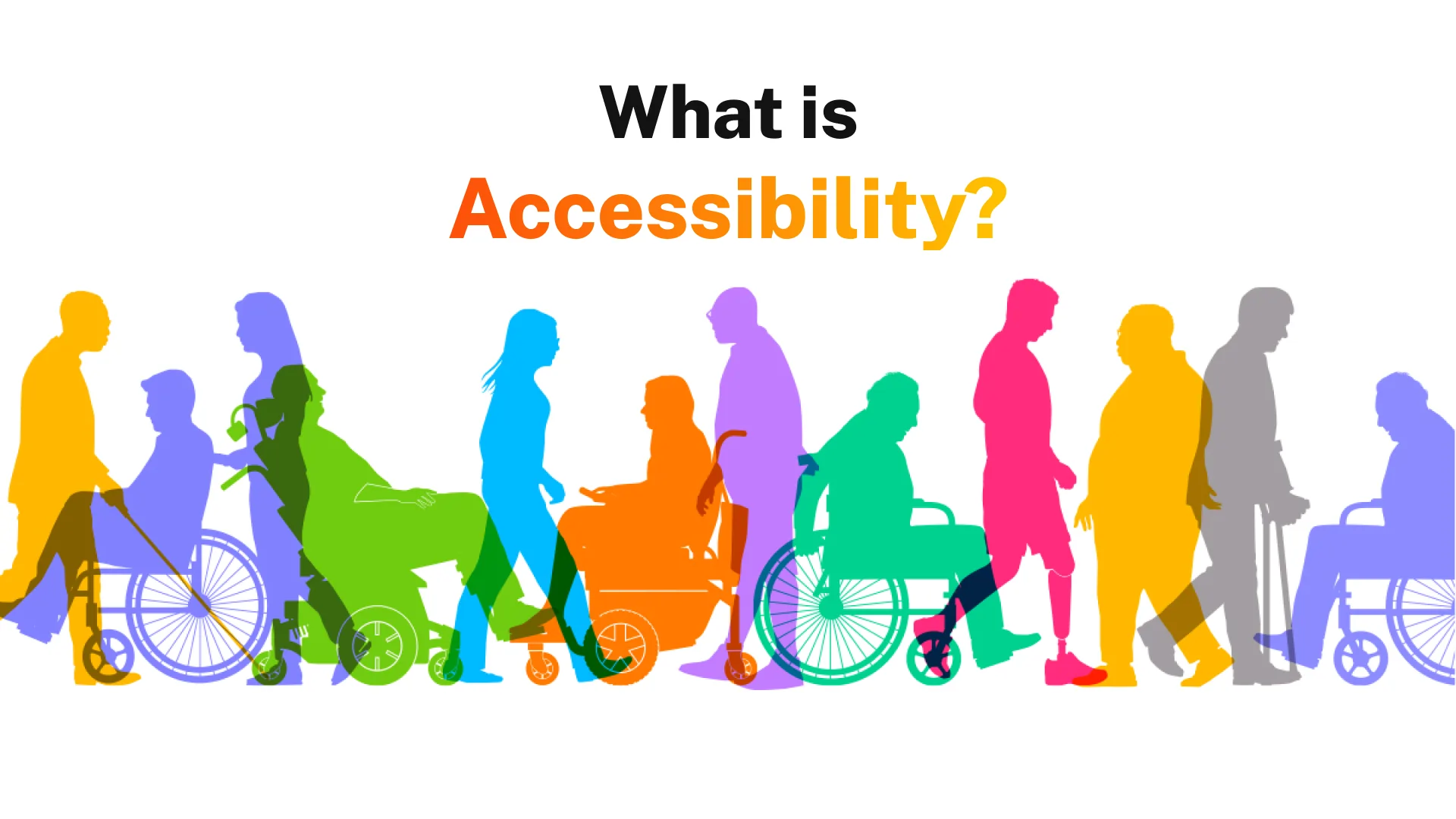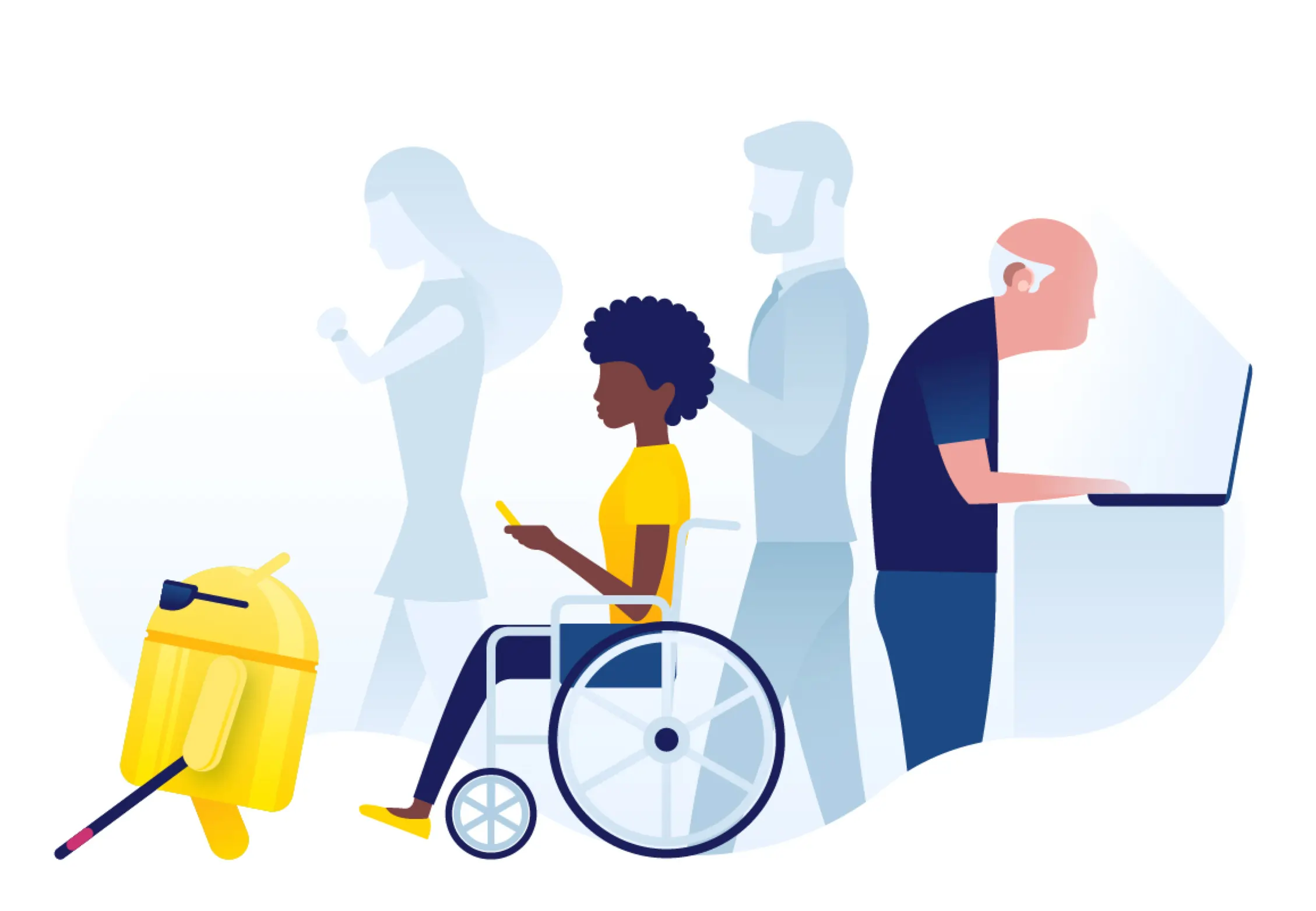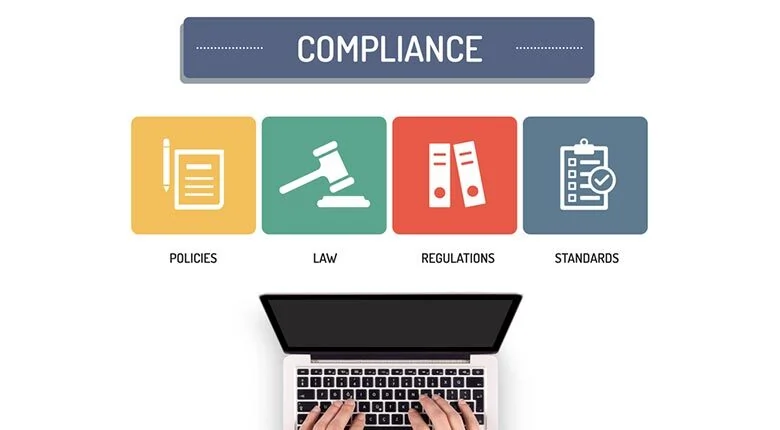
What is Accessibility?
Accessibility is about ensuring that your websites are accessible to all individuals, regardless of their abilities or circumstances, is a fundamental aspect of creating inclusive and equitable online experiences.
This is reflected in the legal requirements for accessibility in some countries, which can also open up new business opportunities by expanding access to your services or products for a wider range of individuals.
Accessibility by us SGTLab, further amplifies this commitment by providing tailored solutions to enhance website accessibility and inclusivity.

Why should you comply with the Accessibility policy?
When you're developing an app, there are rules you've gotta follow. Nowaday, it's crucial to ensure that everyone regardless of their abilities, can easily use it.
Ignoring accessibility not only means excluding some users but also puts you at risk of significant fines and non-compliance penalties under Section 508. So, besides being the right thing to do, making your app accessible is also a legal must-do.

Here are some reasons why you should comply with the Accessibility policy.
The law
ADA or WCAG compliances are made to protect people with disabilities, as well as their rights to be given equal opportunitiesin employment and social activities without facing discrimination.
Over time, these complianceshave evolved from being viewed as “good to have” to “must have”. Today, businesses, organizations and even non-profits are legally obligated to comply with these laws as accessibility is now a legal requirement.
The fines
Every law has its fines coming along. But in this situation, it’s not ‘just some fines’. In ADA compliance, it was stated that “Organizations and businesses can be fined up to $75,000 for a single ADA violation, raising that fine to $150,000 for additional violations”.
In the past, even Netflix became one example and had to pay a huge amount of money for failing to caption their content promptly.
The brand’s awareness
By adding accessibility features, such as closed captions, mobile-responsive design, and transcripts, not only shows your organization’s commitment to social responsibility but also demonstrates inclusion and a stance against discrimination.
Your customers will appreciate the effort and it can also be an attractive trait for potential employees.
Web Accessibility by SGTLab, serves as a comprehensive toolkit elevating your website to meet the stringent standards of WCAG 2.1 Accessibility compliance. Through an array of indispensable tools, we empower individuals with disabilities to seamlessly navigate the digital sphere, dismantling barriers and fostering inclusivity.
How does Accessibility Enhance Business Success?
Let's take a look at an example.
Apple Inc. renowned for integrating accessibility features across its product ecosystem, notably in its iOS and macOS platforms. Apple's dedication to accessibility extends beyond mere compliance with regulations; it's a core aspect of their design philosophy.
Features like VoiceOver, which provides auditory descriptions of on-screen elements for visually impaired users, and Switch Control, enabling individuals with motor impairments to navigate using external switches, showcase their commitment to inclusivity.
By prioritizing accessibility, Apple not only enhances its brand image as an advocate for diversity and inclusion but also attracts a wider user base. Moreover, these features often resonate with users beyond those with disabilities, furthering their appeal and promoting user loyalty.
This strategic approach to accessibility highlights the symbiotic relationship between inclusive design and business success, inspiring other companies to follow suit. Notably, Shopify now offers specialized Accessibility themes and US ADA compliance Shopify apps.
Conclusion
It is essential for any mobile application to include accessibility features and to implement them regardless of the circumstances. Ensuring accessibility is a responsible act to make sure everyone can access and benefit from the information and services you provide.
